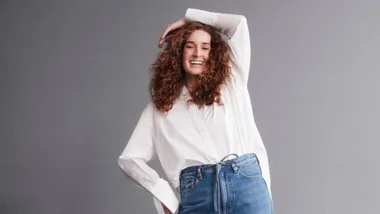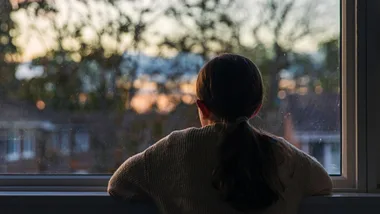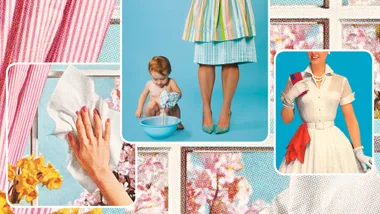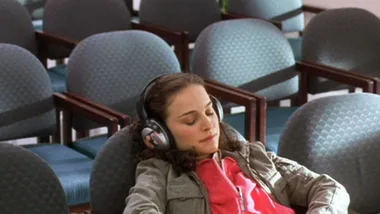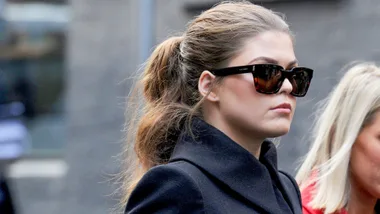Endometriosis affects one in seven women and girls, and nutritionist Katherine Hay has suffered it most of her life. For Endometriosis Awareness Month in March, she tells her story
My journey with endometriosis started in puberty. When I first got my period, I experienced awfully painful bleeds. Back then, the typical response from GPs was to go on the pill to help with the pain, so that’s what I did. I was on the pill for seven years until I was 18. Then things started to go wrong. I was in incredible pain and ended up being hospitalised with a burst cyst on my ovary. They weren’t quite sure why this was happening to someone so young.
In the end, I was diagnosed with PCOS, or polycystic ovary syndrome (which was incorrect), and told to go off the pill. Things didn’t improve. Three months later I was in hospital again with two cysts. The pain was nothing like I’d experienced. I couldn’t breathe, I couldn’t move. I had to be on a morphine drip to get through it. The hospital didn’t give me any options other than pain management. It was like “you just have to ride through it”.
At the time, I was under the care of a gynecologist, and she told me I was probably going to have trouble conceiving because of the PCOS. [But because of my age] she also told me not to worry too much and come back when the time was right. I started studying my Bachelor of Health Science and decided I wanted to give up contraception – all synthetic hormones, essentially. It was around this time that I went on a journey to learn more about the body and what it needed.
Once I was off hormonal birth control, I really started to understand my natural cycles, along with the amount of pain I would experience. It was excruciating. I’d take a whole packet of painkillers every single cycle, every single month. It would stop me working. It would stop me doing daily tasks. It affected my mental health. I knew it wasn’t normal, but it didn’t feel abnormal because no-one was really talking about endometriosis at the time. It wasn’t that long ago, but we have come a long way since then in terms of endometriosis research.
Fast-forward to me conceiving my daughter. We tried for 12 months to conceive her, then fell pregnant and gave birth successfully. She was deemed low risk and the birth was amazing. It wasn’t until my first postpartum period, when my daughter was four months old, that things drastically changed. I was flooding. I couldn’t leave the house. I was losing copious amounts of blood for seven to eight days and the pain was so bad I felt like I couldn’t breathe. Sometimes I would be on the floor in the fetal position for hours just trying to wait until the pain medication kicked in. Over-the-counter painkillers wouldn’t work for me, so I had to be on all different forms of pain medication.
It was then I said to my husband, “Something’s wrong. I am going to my GP and I’m not leaving until I get a referral to a gynecologist who has specialised in endometriosis.” I was a clinical nutritionist by this time, so I was connecting the dots myself. I went to a gynecologist, and he told me it sounded like endometriosis but I needed a confirmation. The gold standard for diagnosis of endometriosis is laparoscopy surgery, and I asked the doctor to perform it on me.
Endometriosis is a chronic condition where tissue similar to the lining of the uterus grows outside it in other parts of the body. It can be highly prolific, and can be found attached to the bowel and the kidneys; they’ve found endo in the lungs and even the brain. My laparoscopy was in 2021, and they said I had stage four endometriosis, which is the most highly prolific infiltrating endo. It was essentially everywhere. I had excision surgery and the recovery was really tough; it took me two weeks to recover. You’re not cured after surgery but it can really help to minimise your signs and symptoms. The surgeon said I should be feeling great post-op and could try for a second baby.
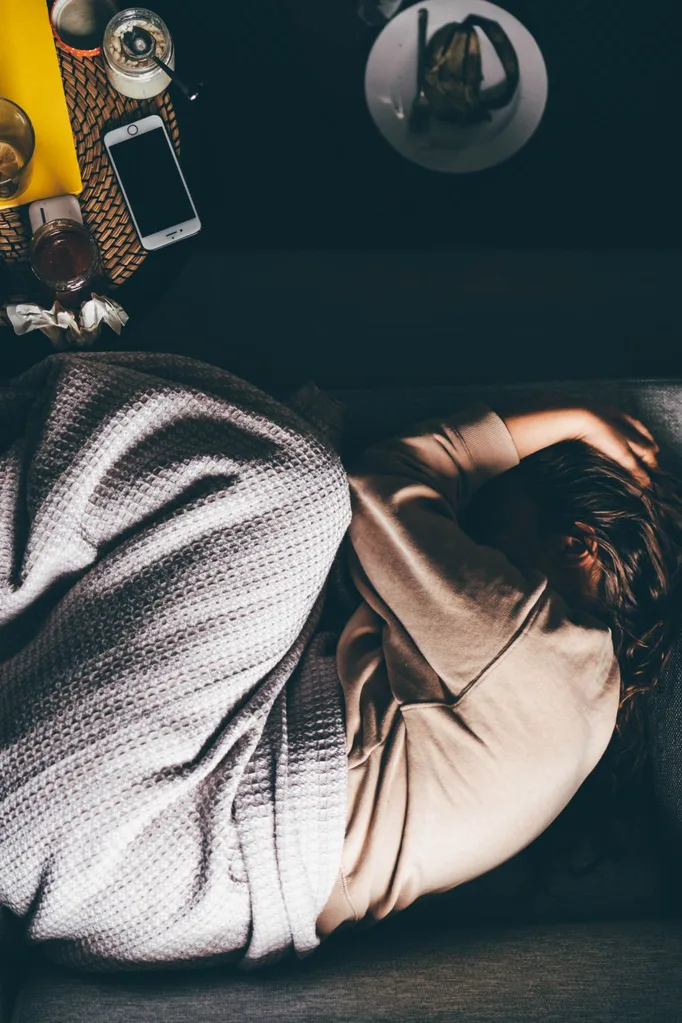
Then two months later, when I had my regular pap smear, I was diagnosed with pre-cancer cells on my cervix. I was advised to have a LLETZ procedure, which is where they burn off the cells within the cervix. I had that in 2021, and wasn’t able to try for a baby for six months. That news was really devastating because the surgeon had said I had a six-month window after my laparoscopy before potentially things start to grow back. We had blown through that window just waiting for my body to heal. Six months later, I had biopsies on my cervix and was in the clear.
But even though the pre-cancer cells had gone, my periods had not changed. I was flooding for three days straight – the medical term is dysmenorrhea. It was probably worse than when I had my surgery. And I just kept saying to my husband, “Something is wrong.” I decided to seek another specialist. I was recommended to one renowned for her endo surgery. I told her my history and she said, “Look, I don’t think we should do another laparoscopy just yet.” It had only been 18 months since my last surgery, so instead she did a tube flush and went in with the camera to have a look.
That was February 2024, and she said everything looked great. I told her, “I don’t feel great; I’m really struggling here.” She told me to give it six months. For those six months my husband and I tried to have another baby, but it wasn’t working. So I told the doctor I wanted another laparoscopy. Her words to me were, “I believe in science first, but I believe in gut instinct second so I’m going with your gut instinct. Let’s go.”
I ended up being in hospital for three days. She told me I had stage four endometriosis, the same as before my first surgery, and that it was so deep and infiltrating it looked like it had been in me for decades. It was attached to my rectum, my kidneys. It was awful. The grief post-surgery was hard. I had no idea how much of the endometriosis had been left inside me the first time, and it took time to come to terms with that. Physically, I had also lost a lot of blood, so I had two iron infusions.
Today, I’m not pregnant. We’ve been on our fertility journey now for two-and-a-half years. But because I have such significant endo, IVF just doesn’t sit right with me. You need to inject yourself with synthetic hormones for IVF, and for someone with endometriosis that can be a recipe for disaster. So instead of throwing money at IVF, my husband and I are trying to feel the best versions of ourselves. After all, he has to be good, healthy and clean too to make our chances the best possible.
Physically, I’m feeling great. I put myself on a management plan, which has made me reevaluate my whole life. I don’t eat gluten or cow’s dairy. I limit processed sugars. I’m focusing on cruciferous vegetables like broccoli, cauliflower, brussels sprouts – these all contain a compound that helps with oestrogen detoxification through the liver. I do Pilates three to four times a week, and focus on building muscle.
I’m also focusing on my mental health – it’s been a long journey of not being believed so now I do what brings me peace. I get to the beach and do things that make me happy. It can be difficult to fit in everything. I’m a business owner, I have a full-time clinic, I have a supplement company [All Things Better] and I’m a mum, but it’s important to support yourself too. If I had any advice to other women, it would be to advocate for yourself.
I always say to my clients, “If you took your car to a mechanic and they did a crappy job, you’re not going to keep taking the car there, right? You find another mechanic.” Same for our health. Don’t stop until you find that right specialist who listens. There are so many out there, but it’s about finding that right person, finding that right GP, finding that right holistic, complimentary healthcare practitioner who can really help advocate for you – and don’t stop until you’re satisfied.
@katherine_hay_nutritionist; for more information go to endometriosisaustralia.org
 Getty Images
Getty Images
